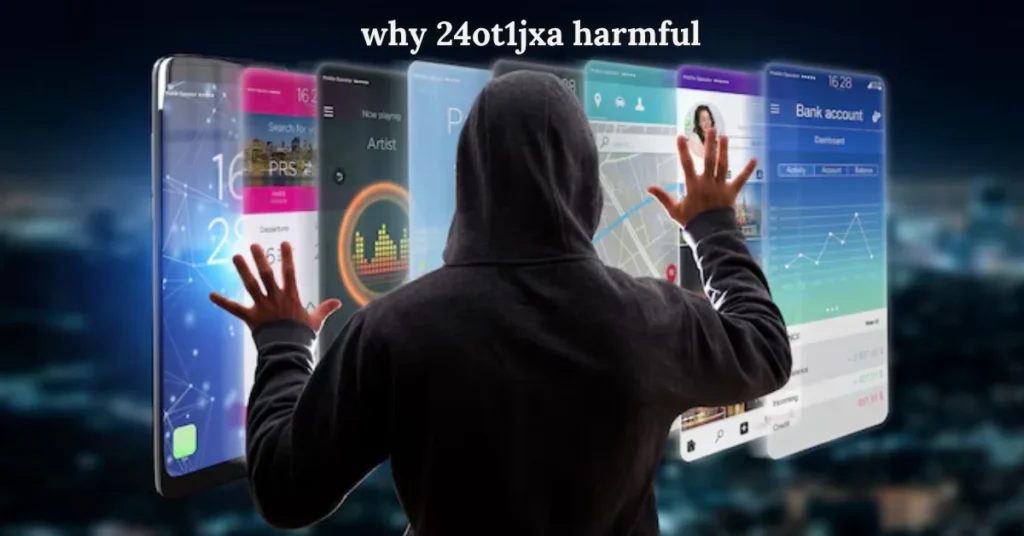Introduction
Ever felt like your app is acting a little off, but you can’t quite put your finger on it? Welcome to the world where hidden codes like why 24ot1jxa harmful lurk beneath the surface of your digital life. You might not see it, hear it, or even notice it at first—but it’s there, watching, tracking, collecting.
This article is all about why 24ot1jxa harmful code might already be hiding in your app and why that should absolutely concern you.
Understanding 24ot1jxa
What is 24ot1jxa?
Let’s be real—24ot1jxa sounds like a keyboard smash. But in the cyber world, that seemingly random code is anything but harmless. It represents a cloaked identifier found in suspicious apps, emails, and obscure file names. Think of it like a secret agent working undercover—only instead of saving the world, it’s compromising yours.
Is it Random or Deliberate?
While it looks arbitrary, 24ot1jxa is often purposely generated. Hackers and malicious developers use patterns like this to hide malware or backdoors that avoid triggering red flags in security systems.
How 24ot1jxa Disguises Itself
You won’t find it in your app list. You won’t get a popup. It masks itself within normal processes—mimicking system updates, hiding in browser caches, or embedding inside media files.
Why 24ot1jxa Is Considered Harmful
Silent Malware Behavior
Unlike viruses of old that caused crashes or chaos, 24ot1jxa plays the long game. It steals, listens, and reports—all silently. You could be sending your data to a server across the world and never know.
Data Collection and Privacy Breaches
Your emails, passwords, location, and even what you type could be collected. It turns your trusted apps into spies in your pocket.
Links to Cyber Espionage
There’s growing suspicion that codes like 24ot1jxa aren’t just criminal tools—they could be used in state-sponsored cyber attacks. The deeper you look, the darker it gets.
Common Entry Points in Applications
Infected Third-Party Plugins
You know that cool plugin you downloaded? It might’ve been laced with 24ot1jxa. Many plugins, especially free ones, are not well vetted.
Open-Source Software Vulnerabilities
Open-source tools are great… until they aren’t. Hackers love using open repositories to inject malicious identifiers like 24ot1jxa.
Shadow Code in Web Apps
Developers sometimes use pre-built templates, which may already include backdoors. This is called shadow code, and it’s often missed during QA checks.
Real-Life Scenarios of 24ot1jxa Infiltration
Personal Device Compromises
A student installs a note-taking app. A month later, they find their emails hacked, and crypto wallet drained. The common thread? 24ot1jxa.
Corporate Espionage Cases
A small update in enterprise software carries 24ot1jxa. Slowly, trade secrets and sensitive documents are leaked to a competitor. Millions lost.
National Security Breaches
Even government systems are not immune. Hidden codes like these have allegedly been found in communication software used by officials.
Why Traditional Antivirus Fails
Evasive Code Patterns
24ot1jxa constantly mutates. It’s like a chameleon—blending in and slipping past static detection tools.
Behavior Mimicking Legitimate Processes
It runs background tasks that look normal—checking for updates, syncing data, etc. Nothing unusual… until it’s too late.
Polymorphic Adaptation
Each time it runs, it might change its structure. This polymorphism confuses old-school antivirus systems.
Signs Your App May Be Infected
Sluggish Performance
Suddenly your app lags? Could be 24ot1jxa running quietly, eating up resources.
Unauthorized Network Activity
Watch for spikes in outgoing traffic when you’re not doing anything. That’s a huge red flag.
Strange Background Processes
You don’t remember installing that service? Check again. It might be 24ot1jxa under a fake name.
Psychological Impact of Hidden Threats
User Trust Erosion
When your own apps betray you, it’s hard to trust again. People uninstall, switch devices, and grow paranoid.
Increased Anxiety Over Digital Safety
Users become afraid of even legit downloads, further complicating the tech landscape.
How to Detect 24ot1jxa
Use of Sandboxing Tools
Run new apps in isolated environments to observe their behavior safely.
Analyzing Traffic Logs
Use network monitors to check for suspicious outbound connections.
Deep Code Audits
Especially important for businesses—hire experts to inspect your codebase for hidden nasties.
Prevention and Protection Strategies
Secure Coding Practices
Developers should follow strict security guidelines when building or modifying code.
Frequent App Scanning
Don’t just scan once. Make it a routine checkup, just like a health screening.
Employee Cybersecurity Training
Teach teams about risks and phishing tricks. Awareness is your first line of defense.
Tools to Fight Hidden Malware
AI-Based Threat Detection
Tools like SentinelOne or CrowdStrike use AI to recognize patterns, even those never seen before.
Advanced Endpoint Security Solutions
Use solutions that monitor every touchpoint—laptops, mobiles, cloud.
Developer Responsibility
Regular Updates and Patching
The longer you delay updates, the longer you leave the door open.
Monitoring for Abnormal Behaviors
Always watch for spikes, lags, and unexplainable changes in your app behavior.
The Future of Stealthy Code Threats
Evolution of Polymorphic Malware
Malware will only get smarter. Expect codes like 24ot1jxa to morph in real time and evade even smarter defenses.
Cybersecurity Trends in AI Age
AI will be both the enemy and the shield. Staying ahead will require adaptability and continuous learning.
Conclusion
By now, it’s clear that 24ot1jxa isn’t just a code—it’s a threat disguised as digital noise. Whether you’re a casual app user, a developer, or a company leader, understanding why 24ot1jxa harmful is your first step toward protection. It’s lurking in your downloads, plugins, and sometimes even your trusted tools. Don’t wait until it’s too late. Stay alert, stay educated, and keep your apps clean.
FAQs
What does 24ot1jxa actually mean?
It’s a disguised identifier often tied to malware, spyware, or unknown scripts, used to mask malicious activity.
Can it affect smartphones or just PCs?
Both! Mobile apps are just as vulnerable, especially Android apps sideloaded from unofficial sources.
How do I know if an app has hidden code?
Look for strange behavior—battery drain, data usage spikes, or permissions that don’t match the app’s purpose.
Is 24ot1jxa used by hackers or governments?
Potentially both. Some believe it’s used in cyber espionage and targeted information gathering.
What’s the best way to stay safe from such codes?
Keep your systems updated, use advanced security tools, and only install apps from trusted sources.







 magazine 6
magazine 6